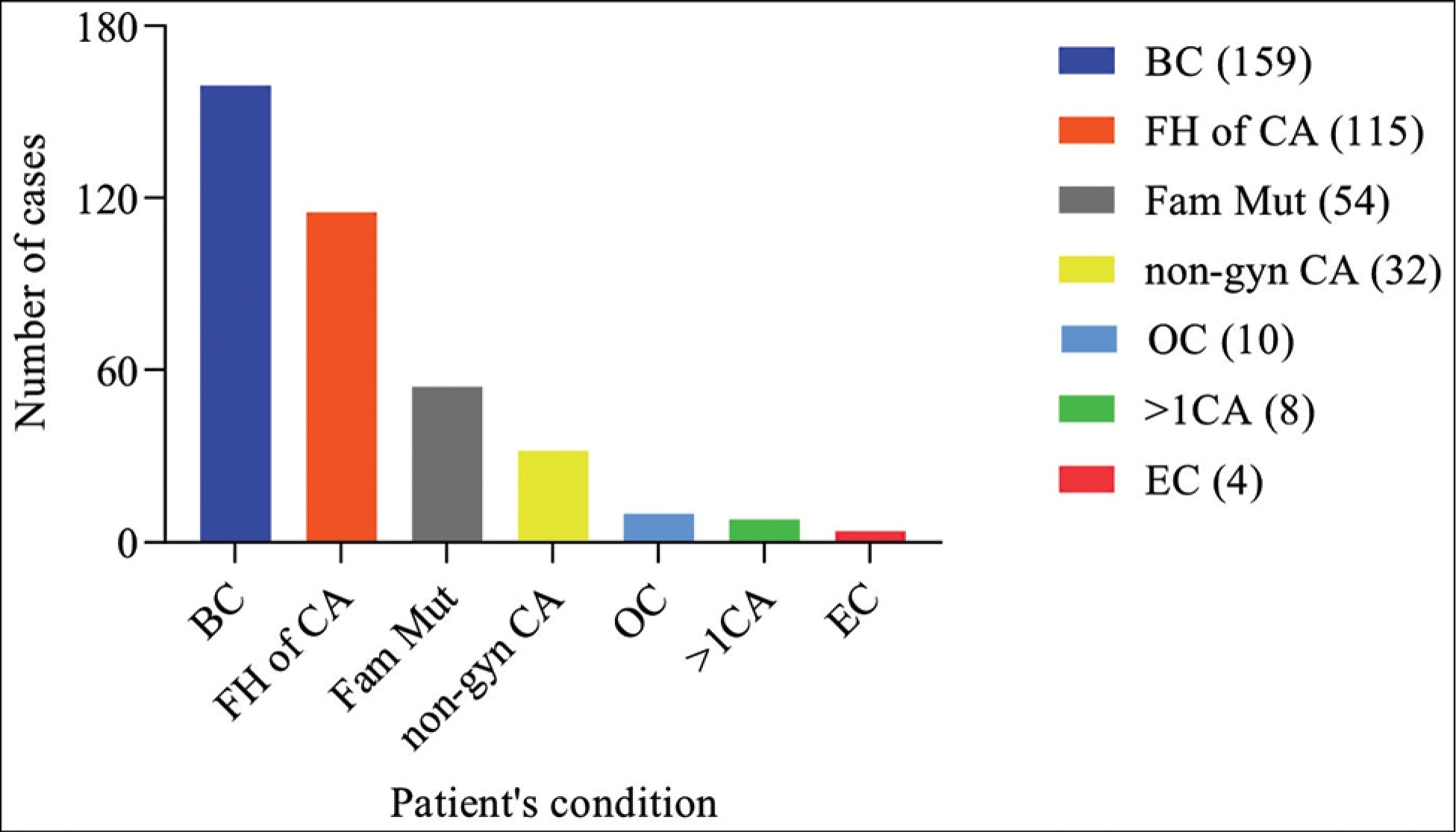
The present study evaluated the profile of germline mutations present in patients who underwent genetic counseling for risk assessment for breast cancer (BC), ovarian cancer (OC), and endometrial cancer (EC) with a possible hereditary pattern.
Medical records of 382 patients who underwent genetic counseling after signing an informed consent form were analyzed. A total of 55.76% of patients (213/382) were symptomatic (personal history of cancer), and 44.24% (169/382) were asymptomatic (absence of the disease). The variables analyzed were age, sex, place of birth, personal or family history of BC, OC, EC, as well as other types of cancer associated with hereditary syndromes. The Human Genome Variation Society (HGVS) nomenclature guidelines were used to name the variants, and their biological significance was determined by comparing 11 databases.
We identified 53 distinct mutations: 29 pathogenic variants, 13 variants of undetermined significance (VUS), and 11 benign. The most frequent mutations were BRCA1 c.470_471delCT, BRCA1 c.4675 + 1G > T, and BRCA2 c.2T> G. Furthermore, 21 variants appear to have been described for the first time in Brazil. In addition to BRCA1/2 mutations, variants in other genes related to hereditary syndromes that predispose to gynecological cancers were found.
This study allowed a deeper understanding of the main mutations identified in families in the state of Minas Gerais and demonstrates the need to assess the family history of non-gynecological cancer for risk assessment of BC, OC, and EC. Moreover, it is an effort that contributes to population studies to evaluate the cancer risk mutation profile in Brazil.
Search
Search in:


Comments